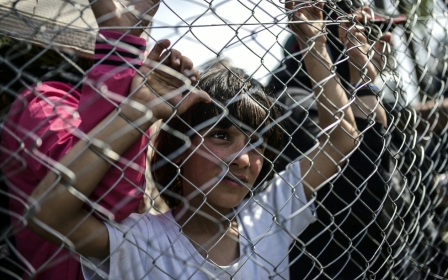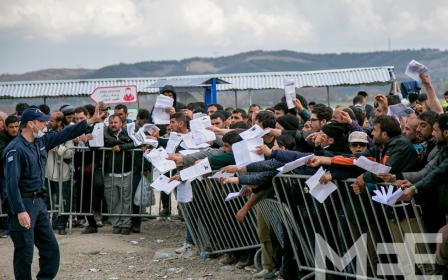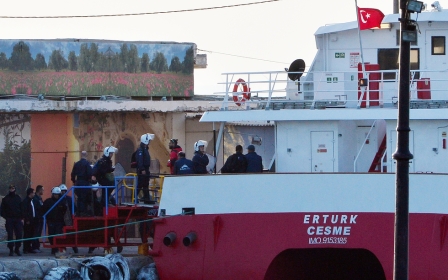Children 'hit by plastic bullets' as Macedonia denies blame over clashes

Fresh protests have broken out at a border crossing, as Greece and Macedonia blamed each other for an incident in which tear gas and rubber bullets were fired on people trying to breach the closed border to get to Western Europe.
Greece lashed out at Macedonia for using "excessive force" on Monday, as protests threatened to spark up again.
Greek Prime Minister Alexis Tsipras added to the criticism, saying Macedonia had shamed Europe in by its actions.
Macedonia's response against "people who did not constitute a threat and were not armed" was unworthy of a European nation, he said.
"It's a great shame for European society and a country that wants to be part of it."
Macedonia, however, hit back and accused police on the Greek side of failing to intervene as about 3,000 migrants "violently" tried to cross the frontier in Sunday's incident.
Medical charity Doctors Without Borders (MSF) said 260 people were treated for injuries after the flare-up on the Greece-Macedonia border: 200 for breathing problems, 30 for wounds caused by plastic bullets and 30 for other injuries.
It was the latest violence to erupt at the flashpoint Idomeni crossing, where around 11,000 migrants have been living rough for weeks after Balkan states closed their borders, cutting off access to Western Europe.
Many of them are fleeing war in Syria and Iraq.
MSF spokesman Jonas Haeensen said the group had treated between 30 and 40 people
"We have treated 30 to 40 people, mostly men but also women and children, for injuries across the body caused by rubber bullets.
"According to their accounts, Macedonian police fired on them," he said.
Macedonian police accused crowds of hurling stones and other objects at them in an attemot to break down a fence at the border, saying they had used tear gas to protect themselves.
But a spokesman for the Greek migration coordination agency, Giorgos Kyritsis, said the Macedonian reaction was totally unwarranted and out of proportion.
He told Vima radio station that there had been "an excessive and asymmetrical use of force" that had created a "very difficult situation on Greek soil".
The Greek government said it had lodged two "very strong protests" with Macedonian authorities, while Kyritsis said it had also "launched action against other European countries which have sent police observers to the Macedonian side," including Slovenia and Hungary.
A statement from the Macedonian interior ministry said 23 of its security forces were injured in Sunday's incident, in which "migrants violently tried to enter Macedonia from Greece".
It added that primary estimations showed "more than 3,000 migrants took part in the incidents, in which Greek police did not try to intervene and stop them".
Macedonian police have denied using any kind of bullets.
Tensions had mounted in the Idomeni camp on Sunday a day after pamphlets were distributed in Arabic saying the border would be reopened.
Greek authorities were aware of the tract and had doubled the police presence at the frontier on Sunday.
New MEE newsletter: Jerusalem Dispatch
Sign up to get the latest insights and analysis on Israel-Palestine, alongside Turkey Unpacked and other MEE newsletters
Middle East Eye delivers independent and unrivalled coverage and analysis of the Middle East, North Africa and beyond. To learn more about republishing this content and the associated fees, please fill out this form. More about MEE can be found here.




